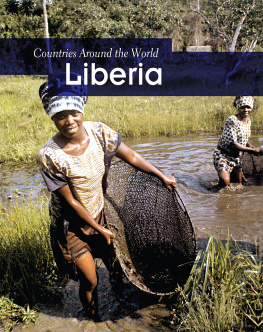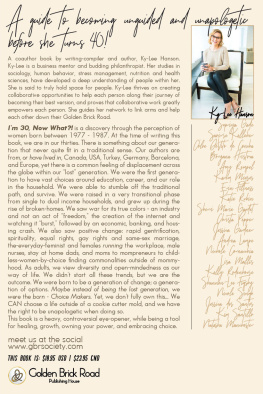JOHNS HOPKINS UNIVERSITY STUDIES IN HISTORICAL AND POLITICAL SCIENCE
HERBERT B. ADAMS, Editor
History is past Politics and Politics present HistoryFreeman
NINTH SERIES
X
HISTORY OF LIBERIA
BY J.H.T. McPHERSON, Ph.D.
Fellow in History, Johns Hopkins University, 1889; Instructor in History, University of Michigan, 1890; Professor of History and Politics, University of Georgia, 1891.
* * * * *
1891
HISTORY OF LIBERIA.
I.
INTRODUCTION.
There are but few more interesting spots in Africa than the little corner of the west coast occupied by the Republic of Liberia. It has been the scene of a series of experiments absolutely unique in historyexperiments from which we are to derive the knowledge upon which we must rely in the solution of the weighty problems connected with the development of a dark continent, and with the civilization of hundreds of millions of the human race. Many questions have arisen which have not been settled to our complete satisfaction. Is the Negro capable of receiving and maintaining a superimposed civilization? Froude declares that "the worst enemies of the blacks are those who persist in pressing upon them an equality which nature has denied them. They may attain it in time if they are fairly treated, but they can attain it only on condition of going through the discipline and experience of hundreds of years, through which the white race had to pass before it was fit for political rights. If they are raised to a position for which they are unqualified, they can only fall back into a state of savagery."[1] Upon the truth or error of this view how much depends! It is shared by many; some even believe that the condition of Liberia tends to confirm it, thinking they discern signs of incipient decay. But the great preponderance of opinion is on the other side. The weight of evidence shows the colonists have at the lowest estimate retained the civilization they took with them. Many maintain that there has been a sensible advance. A recent traveller describes them as "in mancher Hinsicht schon hypercultivirt."
What might be called a third position is taken by one of the most prominent writers of the race, E.W. Blyden, the widely-known President of Liberia College. The radical difference in race and circumstance must, he thinks, make African civilization essentially different from European: not inferior, but different. The culture which the blacks have acquired, or may attain in further contact with foreign influence, will be used as a point of departure in future intelligent development along lines following the characteristics of the race. This tendency to differentiate he regards as natural and inevitable; it ought to be recognized and encouraged in every way, that the time may be hastened when a great negro civilization, unlike anything we have yet seen, shall prevail in Africa and play its part in the world's history.
If we make allowance for the errors and mistakes of an untrained and inexperienced people, the history of Liberia may be regarded as a demonstration of the capacity of the race for self-government. Upon the capability of individuals is reflected the highest credit. The opportunities for a rounded-out and fully developed culture afforded by the peculiar conditions of life in the Republic produced a number of men who deserve unqualified admiration. From the earliest days of the colony, when Elijah Johnson upheld the courage of the little band in the midst of hostile swarms of savages, to the steadfast statesmanship of Russwurm and the stately diplomacy of Roberts, there have stood forth individuals of a quality and calibre that fill with surprise those who hold the ordinary opinion of the possibilities of the Negro. The trials of the Republic have afforded a crucial test in which many a character has shown true metal. It is not too much to assert that the very highest type of the race has been the product of Liberia.
There are other aspects in which our tropical offspring has for us a vital interest. Perhaps the most important is the connection it will have in the future with what is called the Negro Problem in our own country. There have been and are thoughtful men who see in colonization the only solution of its difficulties. Others ridicule the very suggestion. It is a question into which we do not propose to go. But there is scarcely any doubt that when the development of Liberia is a little more advanced, and when communication with her ports becomes less difficult, and when the population of the United States grows more dense and presses more upon the limits of production, there will be a large voluntary migration of negroes to Africa. And no one will deny that the existence of a flourishing Republic of the black race just across the Atlantic will react powerfully upon all questions relating to our own colored population.
But let us not venture too deeply into this theme. Another claim of Liberia upon the sympathetic interest of the entire people, is that it represents our sole attempt at colonial enterprise. It is true the movement was largely individual, but the effort came from a widespread area of the country; moreover, the part played by the National Government was not only important, but essential. Without its friendly intervention, the plan could never have been carried out. The action carries with it some responsibility. The United States might well exercise some protective care, might now and then extend a helping hand, and let the aggressive Powers of Europe see that Liberia is not friendless, and that encroachment upon her territory will not be tolerated.
A few words upon the topography of the country and upon the aborigines may not be out of place. Liberia is by no means the dreary waste of sand and swamp that some imagine it. The view from the sea has been described as one of unspeakable beauty and grandeur. From the low-lying coast the land rises in a terraced slopea succession of hills and plateaux as far as the eye can reach, all covered with the dense perennial verdure of the primeval forest. Perhaps the best authority on the natural features of the country is the zologist of the Royal Museum of Leyden, J. Bttikofer, who has made Liberia several visits and spent several years in its scientific exploration. The account of his investigations is most interesting. Small as is the area of the country all kinds of soil are represented, and corresponding to this variety is a remarkably rich and varied flora. Amidst this luxuriance is found an unusually large number of products of commercial value. Cotton, indigo, coffee, pepper, the pineapple, gum tree, oil palm, and many others grow wild in abundance, while a little cultivation produces ample crops of rice, corn, potatoes, yams, arrowroot, ginger, and especially sugar, tobacco, and a very superior grade of coffee. The fertility of the soil renders possible the production of almost any crop.









